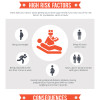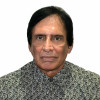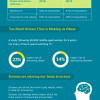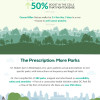
Getting enough magnesium in your body is essential for your physical and mental health. Here are some of the many amazing benefits of Magnesium that can be essential to your health and well-being.

Getting enough magnesium in your body is essential for your physical and mental health. Here are some of the many amazing benefits of Magnesium that can be essential to your health and well-being.

I’m a diplomate of Internal Medicine and Nuclear Medicine. My specialty is in Diabetes and Thyroid. I do radioactive ablation of Thyroid cancer and Hyperthyroidism/Graves’ and Nodular Toxic Goiter.

Stress had never been considered as detrimental as it is today. In the early days, it was stress that invoked a ‘fight or flight’ response and kept our ancestors safe from wild dangers. Now, the same stress is posing a risk of harm to the human body. It has been recognized as the No. 1 proxy killer disease by the esteemed American Medical Association. The Occupational Safety and Health Administration (OSHA) have addressed the perils of workplace stress in the American Industry that claims an estimated $300 billion annually.

Between 1980 and 2014, the number of people with diabetes increased from 108 million to 422 million. This infographic from Study Medicine Europe takes you through the reasons behind these incredible numbers and looks at what we can do to reduce the number of deaths related to diabetes. In 2015, around 1.6 million deaths were caused by diabetes and this figure is expected to double by 2030. Interestingly about 90%-95% of people with diabetes have type 2, and this can be prevented or delayed by lifestyle changes. There is then another issue with prediabetes, and as many as 1 in » » » [Read more]

A graduate of UST College of Medicine. Did his residency in Internal Medicine/Diabetes at Mary Johnston Hospital. A Fellow and Diplomate of the Philippine Academy of Medical Specialists. Member of Philippine Medical Association and Manila Medical Society. Practicing in two clinics, Konsulta@Resulta at Newton Plaza in Old Sta. Mesa (Thurs-Fridays) and Med 101, in 74 Villongco St. Manggahan, Commonwealth (Sun-Mon-Tues).

The problem with digital screens is that they emit blue light. Blue light can cause eye strain (prevalent in 91% of adults between the ages of 18-39), damage the retina, and lead to long-term vision problems like cataracts and macular degeneration. Screen time also causes difficulties with sleeping since blue light mimics daylight, which then reduces the amount of melatonin we release. More than 80% of adults use digital screens in the hour before they go to bed, which is problematic. Increased screen time is also linked to some other health conditions, from obesity to diabetes. A study of 50,000 » » » [Read more]

Foot problems for some people are nothing more than an occasional annoyance that equates to not wearing a favorite pair of shoes for a few days, but for others, foot problems are to the extreme of making the process of walking impossible. Apparently, the feet are depended on daily and forced to endure a tremendous amount of strain yet most people give little or no thought to what happens if foot problems were to develop until it happens. Importance of Proper Foot Care Just as a person goes through a regimen of skincare, hair care, eating, and exercising, the feet » » » [Read more]

Specialist in diabetes, lipid and cholesterol disorders, thyroid disorders, hypothalamic-pituitary and adrenal disorders, osteoporosis and bone mineral disorders, obesity, and other related hormonal disorders.

There are many benefits to spending time in nature, but new research shows that walking in nature changes the brain for the better. These and other health benefits give you more reasons to take the time to walk in natural settings. If you live in a city, you may be at risk for health issues related to chronic stress. Physiomed’s infographic helps you understand all of the benefits that walking in nature can provide while helping you set up a plan to make this a part of your healthy lifestyle. Why Walk in Nature Instead of the City? Although walking » » » [Read more]

I specializes in management of diabetes, thyroid disorders, thyroid cancer, osteoporosis, pituitary, adrenals, and other hormonal disorders. I also perform ultrasound guided fine needle biopsy of thyroid.